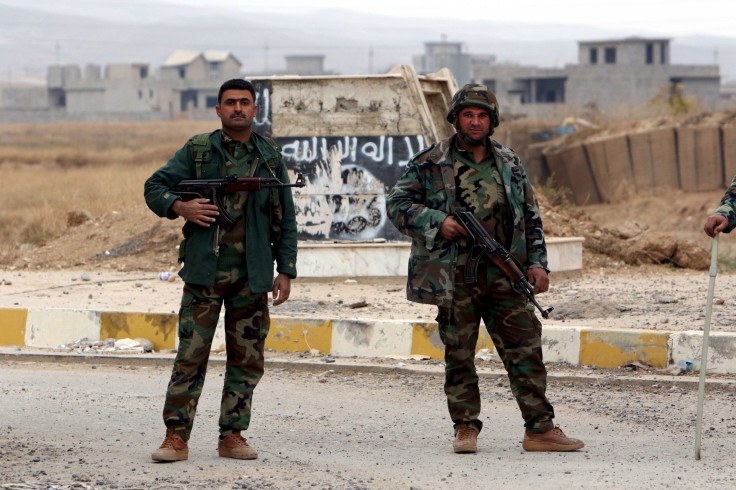Kurdish Forces Exploiting Conflict With Islamic State To Seize Land, Loot Villages, Arab Officials Say

Arab officials in Iraq and Syria have claimed that U.S.-backed Kurdish forces are exploiting the region's vulnerable situation in order to seize land. These complaints reflect the constantly shifting internal boundaries and conflicts in the area, the Wall Street Journal reported on Wednesday.
As the Kurds have been driving out members of the Islamic State group from cities in Iraq and Syria, residents say they are sometimes driven out of their own homes along with members of ISIS. Earlier this month, some Arab residents claimed that the Kurds pushed ISIS fighters out of the Iraqi city of Sinjar and then looted houses of Sunni Arab civilians suspected of sympathizing with the extremist group.
Local officials told the Wall Street Journal that since July, Kurds destroyed more than 50 Arab villages after seizing them from the Islamic State.
Kurdish fighters are claiming not only land, but also oil resources that have long been in dispute, which led to increasing tensions between ethnic groups.
When Kurdish forces known as the Peshmerga reclaimed Sinjar on Nov. 13, some members of the Yazidi ethnic group also declared they would not allow Arabs to return to the city.
“Kurdish Muslims who have done nothing wrong can come back,” Khalaf Dakheel Ceedo, a Yazidi Peshmerga, said according to the Wall Street Journal. “But for Arab Muslims, no way.”
Three major groups make up Iraq’s population: Shiite Muslims and Sunni Muslims, who form the Arab majority, and Kurds, who are an ethnic minority. Since July 2014, the Islamic State has captured territory in majority-Sunni Arab areas, which made the Kurds and Shiites view other Sunni Arabs with suspicion.
The Kurdish forces had planned to capture Sinjar from the Islamic State to block the extremist group from moving fighters, weapons, oil and other resources between its territories. U.S. airstrikes have continued to target ISIS strongholds in the city, but cutting off the group’s ability to move oil and goods could cripple its sources of revenue. ISIS reportedly makes up to $50 million per month in oil sales, which it conducts on the black market at prices much lower than international rates.
After the Kurds tookc back Sinjar from the Islamic State, Peshmergas and Yazidis were seen looting houses and shops in the town, the Wall Street Journal reported. Sunni Arab officials warned that if people are constantly pushed out of their homes, they could be recruited by the Islamic State with relative ease.
Kurdish officials say they don't allow Arabs back in their homes out of fear that the Islamic State will use the area to make bombs and recruit young people. Many Arabs have fled areas recaptured by Kurds because they fear retribution, according to residents and Kurdish officials.
During a news conference in Washington, D.C. on Tuesday, President Barack Obama and French President François Hollande said they would not send ground troops to Syria to fight the Islamic State. Instead, they emphasized that they would continue to rely on local forces.
© Copyright IBTimes 2024. All rights reserved.





















